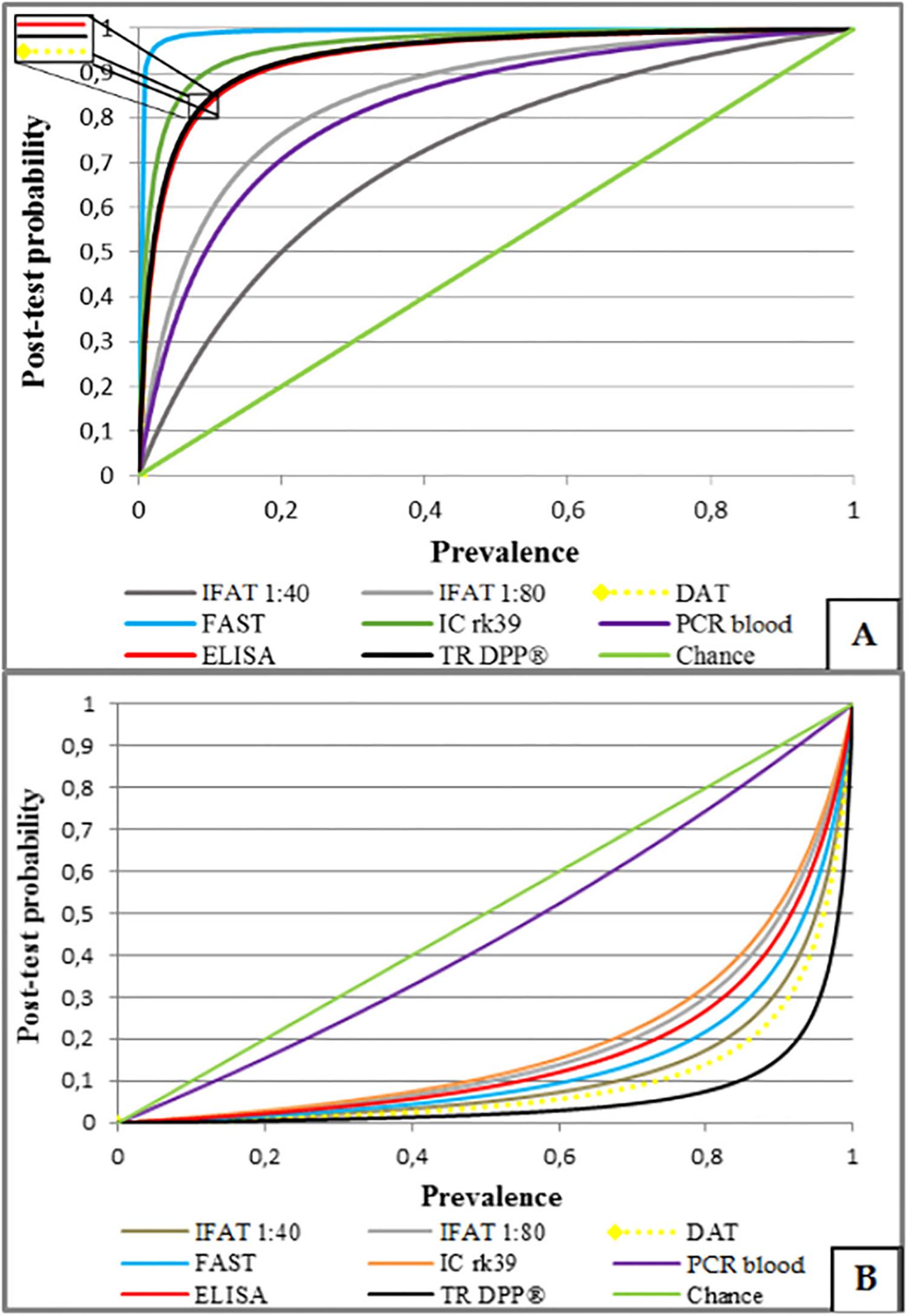ABSTRACT
Dogs are considered the main reservoir of Leishmania infantum. This protozoan causes visceral leishmaniasis (VL), an uncontrolled urban zoonosis in Brazil. Serological tests and polymerase chain reaction (PCR) on peripheral blood were performed to identify infected dogs in scenarios of higher and lower prevalence of the disease (Teresina and Vitória). One-hundred infected and 57 non-infected animals from Teresina and 100 non-infected animals from Vitória were studied. Animal selection was not dependent on previous serology. The sensitivity (Teresina) and specificity (Teresina and Vitória) were as follows: indirect antibody fluorescence (IFAT) cut-off of 1:40 (IFAT 1:40): 96%, 18%, and 76%; IFAT 1:80: 90%, 33%, and 93%; direct agglutination test (DAT): 96%, 33%, and 98%; fast agglutination screening test (FAST): 93%, 68%, and 100%; immunochromatographic assay with a recombinant rK39 antigen (rK39): 88%, 74%, and 98%; enzyme linked immunosorbent assay (ELISA): 91%, 79%, and 98%; rapid dual-path platform test (TR DPP®): 98%, 60%, and 98%; and blood PCR: 29%, 93%, and 97%, respectively. In the high transmission area, none of the tests adequately discriminated L. infantum-infected from non-infected dogs. However, in the high transmission city, the area under the receiver operating characteristic (ROC) curve of FAST, DAT, ICrK39, ELISA and TR DPP® was high.
Visceral leishmaniasis; Leishmania infantum; Dogs; Diagnosis; Control


